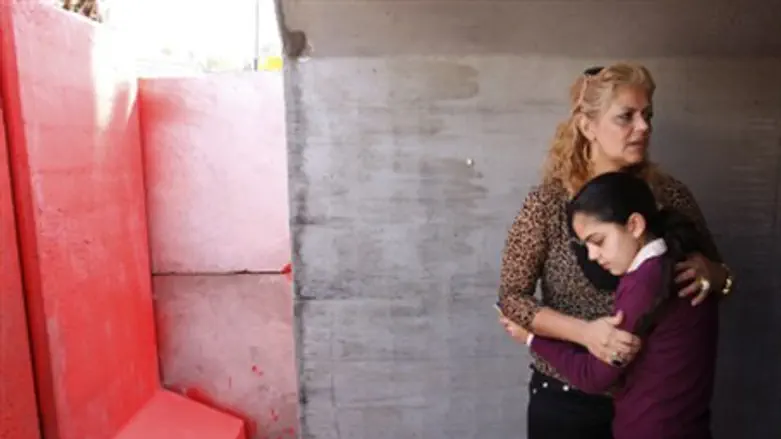
The IDFand Home Front Commandare expectedto invest100million shekel (about $25 million) into "Code Red" and civilian warning systems against incoming rockets in 2015, NRG reports Monday - after the publication of an explosive report predicting 1,500 rockets raining down on Israel per day in the event of another war with Hezbollah.
Among other measures, the IDF has completed an official warning app, according to a military source. Dubbed "i-Oref", it would alert Israelis to incoming rockets in 3 different areas of the country of the user's choosing, and warns as well how far away the rocket is at the time of the alert. Apps were a prime source of information regarding rockets during Operation Protective Edge in Gaza and likely saved thousands of lives.
Also under development is a warning system to "push" messages to smartphones, the same way news agencies do with big headlines.
"We are investing a lot of money and know the cost-benefit ratio," the source said, adding that the prime goal is to "save lives and reduce damage to the GDP" at the same time.
As smartphones and technology advances, keeping Israelis safe during war has only become easier, he said. He noted that during Protective Edge, the warning system was advanced enough that even an Israeli living in Ramat Gan would not need to enter into shelters if the alarm was really for (adjacent) Bnei Brak; the goal is to make the predictions even more exact.
"We moved from having 6 distinct warning regions in 1991 to over 200 today," he noted.
With the new system under development, "if there is a rocket aimed at an IDF base, only that base will respond to that alarm," he said. "We worked to make separate alarms by neighborhood in Tel Aviv and set up a map; according to simulations, if we had this system during Protective Edge we would have reduced unneccessary alarms for the Tel Aviv and Gush Dan areas by 30%."
"Todayit is possible for high-trajectory rockets to reach allparts of the country-from Dan toEilat,and it'sno secret thatthe Northhas more of a range," he concluded. "Ifyou ask me, the Home Front is not the secondary or tertiary priority - it's the first priority, and it has been for a long time."